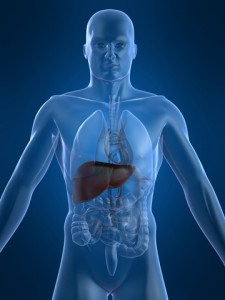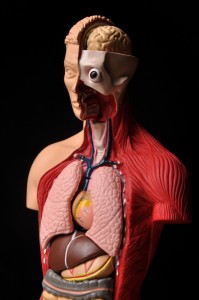Did you know that nearly a full percent of high school students in the 8th, 10th and 12th grades have reported using heroin in their lifetimes? According to the Monitoring the Future survey conducted annually at the University of Michigan, most of our nation’s student perceive heroin as one of the most dangerous drugs available to them. That’s the good news. The bad news is that there are still many individuals who have fallen into the trap of heroin addiction who will suffer the long-term health effects of their addiction if they do not get the help they need to quit this powerful drug.
Table of Contents
Dependence and Addiction
 The first major concern for anyone who is abusing heroin should be the likelihood of tolerance, dependence and addiction. Tolerance is the first aspect of the disease to develop. It is marked by the need to take more of any drug to achieve the same euphoric effects. The human body can develop tolerance to any drug when that drug is taken frequently enough. When we’re talking about dangerous, illicit drugs, the ramifications of that tolerance are compounded by the socioeconomic effects that go along with addiction.
The first major concern for anyone who is abusing heroin should be the likelihood of tolerance, dependence and addiction. Tolerance is the first aspect of the disease to develop. It is marked by the need to take more of any drug to achieve the same euphoric effects. The human body can develop tolerance to any drug when that drug is taken frequently enough. When we’re talking about dangerous, illicit drugs, the ramifications of that tolerance are compounded by the socioeconomic effects that go along with addiction.
The chances of developing tolerance to a drug such as heroin are increased by the initial high that occurs when an individual takes a drug for the first time. The first high is generally the most profound, and the drug user will continue to consume more and more heroin as they chase that feeling.
The next stage is dependence. When dependence occurs, the drug user will find that he or she needs the drug in their system to simply feel “normal.” Without the drug, they will experience withdrawal symptoms, which in the case of heroin, can be fairly severe. These symptoms include:
- Sweats and chills
- Nausea
- Vomiting
- Unexplained pain
- Chronic itching
- Headache
- Cravings for more heroin
In order to assuage these symptoms, the heroin user will be forced to consume more of the drug in an attempt to “get well.”
Finally, full-blown addiction can occur. Addictive behavior includes a compulsion to obtain heroin by any means necessary, as well as a lack of concern for any other responsibilities one might have to family, employment or even their own children. Once addiction takes hold, if the heroin addict does not seek help in a drug recovery treatment program, there is a grave possibility that more damage and side effects will occur.
Liver Damage
The scientific journal Facta Universitatis offers some insight into the damage caused to the liver due to chronic heroin abuse and addiction. They conducted a study that included 50 autopsies. Ten of these autopsies included pristine livers and the remainder consisted of the livers of heroin addicts in various states of the illness.
 The liver is a gland that has very important functions in the human body. First, your liver cleans your blood of the toxins created during normal operation. Next, it produces bile which is needed to properly digest the foods we eat. Your liver also helps to create the cholesterol our bodies need to function properly. Finally, it stores the sugars our bodies need for bursts of energy.
The liver is a gland that has very important functions in the human body. First, your liver cleans your blood of the toxins created during normal operation. Next, it produces bile which is needed to properly digest the foods we eat. Your liver also helps to create the cholesterol our bodies need to function properly. Finally, it stores the sugars our bodies need for bursts of energy.
One of the substances that the liver will clean from our bloodstream is morphine, and its synthesized counterpart, heroin. Because heroin is so toxic, every time our liver metabolizes it out of the bloodstream, significant damage occurs. The overall purpose of the study cited in Facta Universitatis was to determine if prolonged use of heroin had an increased ill effect on the liver. In the end, they discovered this was precisely the case. The longer a person used heroin, the more damaged their liver became.
This means that kicking the heroin habit in its early stages can prevent further damage. It also means that if someone has been using heroin for a longer period of time, they need to seek treatment immediately to increase their chances of prolonging their life.
Specific Liver Diseases
Hepatitis is an inflammation of the liver. According to an article in Medical News Today, most the liver damage is caused by hepatitis A, B, or C. Heroin addiction can lead to hepatitis, according to Narconon, as well as HIV/AIDS and other infectious diseases.
HIV/AIDS Risks of Long-Term Heroin Abuse
For many years, the only preferred method to ingest heroin was to inject it into a vein. In recent years, according to a fact sheet released by the DEA, heroin has been available in more pure forms and these higher purity heroin products are either snorted or smoked. However, many individuals are still injecting the drug, and sharing needles as they do so.
Sharing a needle with someone who has been infected with HIV can lead to the transmission of the disease. HIV is a virus that attacks the immune system and can eventually manifest into acquired immunodeficiency syndrome, or AIDS.
The National Institute on Drug Abuse confirms reports that heroin can be taken several ways. The intravenous method, placing the drug into the vein directly via a hypodermic needle, can result in unique side effects after prolonged use. As reported by the Utah Department of Human Services, using heroin intravenously can result in collapsed veins.
When heroin is introduced to the human body, it causes a disruption in the way our brains create certain neurotransmitters that control and regular the way we feel. Specifically, opiates impersonate these neurotransmitters, according to the National Institute on Drug Abuse. These imitators grab the neuroreceptors in the brain and trick them in creating the feelings of euphoria. The brain will, over time, stop producing the natural neurotransmitters that create feelings of wellness. Without heroin, the brain of an addict becomes incapable of making them feel well, happy or even sad.
The National Institutes of Health published a report that looked into the prevalence of and trends concerning psychotic symptoms in a wide range of drug abusers. The research, conducted in 2008, found that regardless of the type of drugs used – cannabis (marijuana), opiates (heroin), amphetamines (methamphetamine and cocaine) – the results were the same. The longer someone abuses illegal drugs, the more likely they are to develop negative psychological effects. Specifically, the individuals who participated in the research reported delusional and hallucinatory instances.
Respiratory and Cardiac Ailments
 The National Institute on Drug Abuse also reports that chronic use of heroin can lead to clogging of the blood vessels that connect to the lungs, liver, kidneys, and even the brain. This is because many of the additives used to “cut” street heroin do not dissolve properly. Cutting of heroin is the process through which a drug supplier will extend their stock in order to make more money from the end users. Because heroin use is not regulated, there is no checks and balance system to protect the end user. The drug addict literally has no idea what the heroin has been blended with prior to purchasing it.
The National Institute on Drug Abuse also reports that chronic use of heroin can lead to clogging of the blood vessels that connect to the lungs, liver, kidneys, and even the brain. This is because many of the additives used to “cut” street heroin do not dissolve properly. Cutting of heroin is the process through which a drug supplier will extend their stock in order to make more money from the end users. Because heroin use is not regulated, there is no checks and balance system to protect the end user. The drug addict literally has no idea what the heroin has been blended with prior to purchasing it.
Heroin use also slows the respiratory system. This slowing down of the breathing cycle, when coupled with overall poor health from drug abuse, lack of attention to diet, as well as exercise, can readily lead to infections such as pneumonia or tuberculosis.
Early intervention is the key to success when it comes to heroin addiction. If the drug user can stop abusing heroin early enough, many of these effects can be minimized. Don’t wait for your loved one to find rock bottom on their own. Call us today to talk to one of our specialists so we can help you to help them before lasting damage is done.


